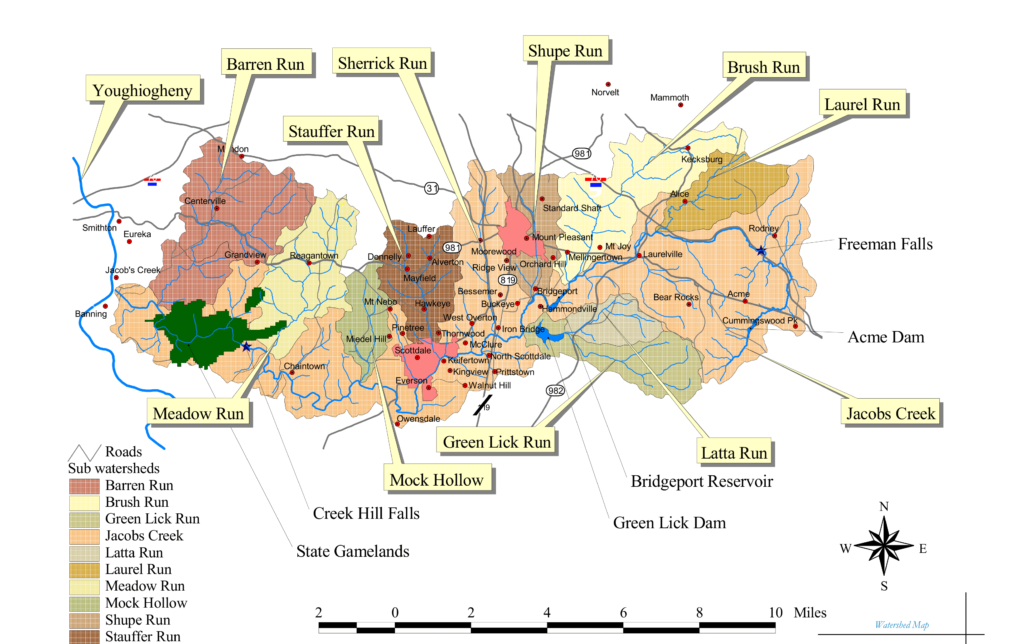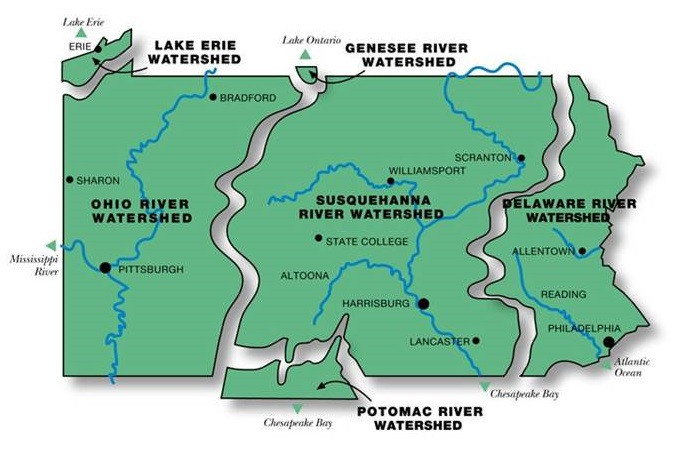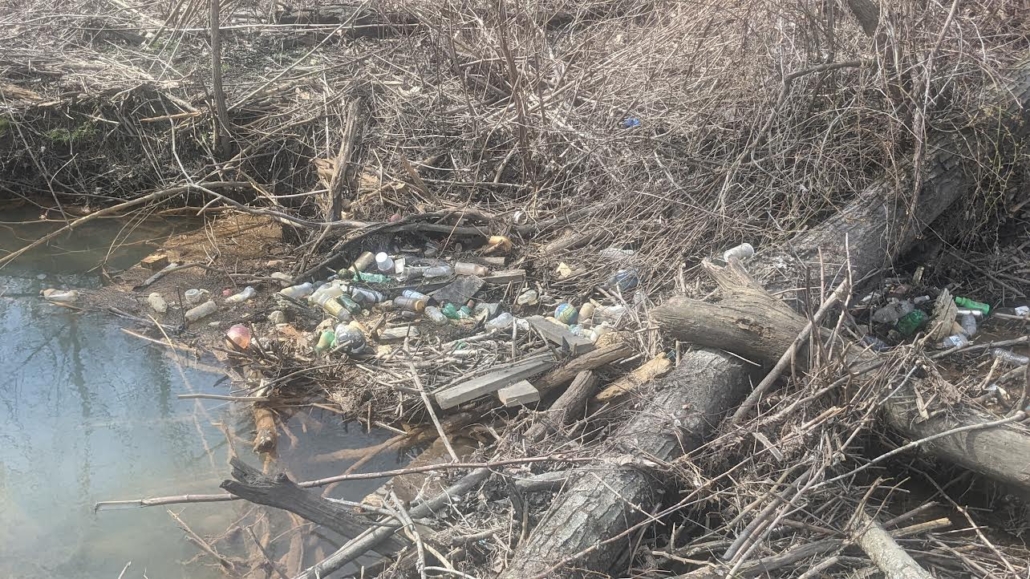What is a Watershed?
A watershed is a geographical area of land where all the water drains to a common body of water, such as a lake, a river or even the ocean. Another name for a watershed is a drainage basin.
In our case, the common body of water to which all the water that hits our land drains into is Jacobs Creek. But Jacobs Creek is only a small part of a much larger system! Watersheds can be thought of like nesting dolls, with lots of small watersheds coming together to form a large one, and those large ones forming even larger ones. Jacobs Creek Watershed combines its waters with other local streams like Sewickley Creek, Indian Creek, Cedar Creek, Laurel Hill Creek, and more to form the Youghiogheny River Watershed.
But even still, the waters continue to flow and combine into larger Watersheds. The Youghiogheny River flows into the Monongahela River, which itself combines with the Allegheny River to form the start of the Ohio River in Pittsburgh. This makes us part of the Ohio River Watershed, the westernmost watershed in Pennsylvania.
The state of Pennsylvania contains 6 major watersheds:
- The Susquehanna River Watershed
- The Ohio River Watershed
- The Delaware River Watershed
- The Potomac River Watershed
- The Genesee River Watershed
- The Lake Erie Watershed
But the journey is still not done! After a very long journey through six states, the waters of the Ohio finally join the mighty Mississippi River, the largest river in North America, at Cairo, Illinois. Finally, after traveling nearly 2,000 miles, the waters once in Jacobs Creek flow out into the Gulf of Mexico!
This huge scale of interconnectivity is precisely why watersheds are so important to study and protect. Even though water quality projects at the local scale here in Jacobs Creek may seem to be barely a drop in the bucket that is the Mississippi, local scale issues with water quality are much easier and more cost effective to manage than large scale issues in major rivers. If every small watershed like Jacobs Creek can be kept healthy, it can all add up to a huge impact in the larger systems they feed.
This is where we at JCWA along with other watershed groups and volunteers like you come in. Doing your part to keep your local creeks free from pollution like oils, soaps, plastics, litter, fertilizers, herbicides, pesticides, and other harmful substances can not only maintain the natural biodiversity of Jacobs Creek, but also provide economic and social benefits as well. Reducing costs associated with water treatment for human use, equitable access to clean water, and boosts to water-related recreation industries all come from keeping our waterways healthy from the source. Its our actions at the small scale here in Jacobs Creek and other watersheds across the region that have the potential for cascade effects reaching all the way into our oceans!
Click Here to see ways JCWA is cleaning up our creek!




